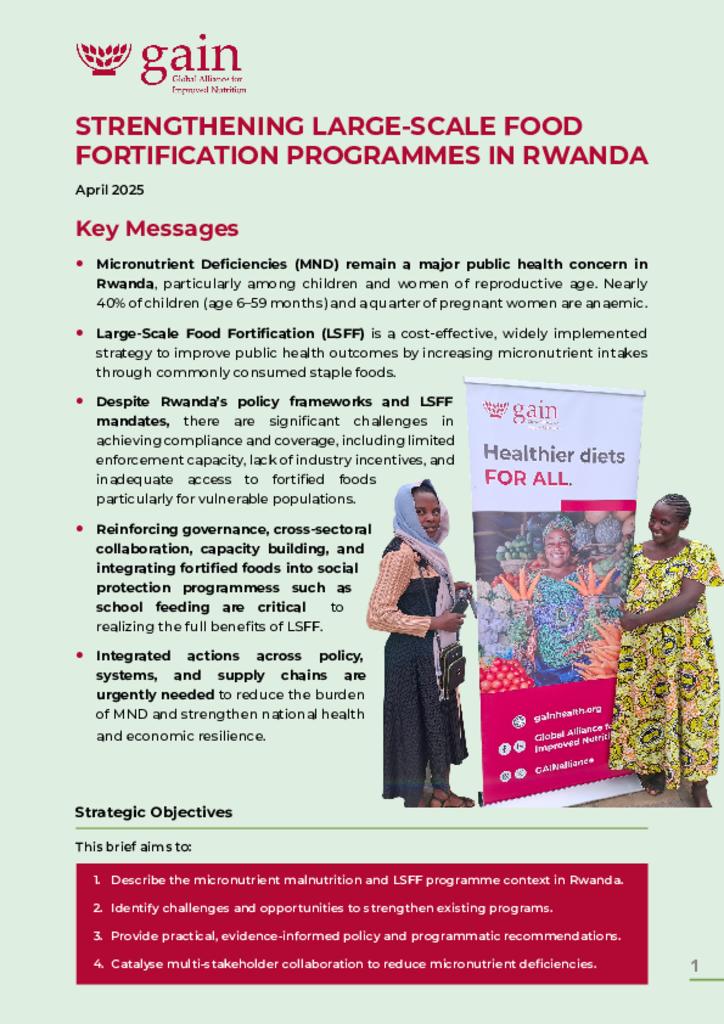This brief aims to:
1. Describe the micronutrient malnutrition and LSFF programme context in Rwanda;
2. Identify challenges and opportunities to strengthen existing programs;
3. Provide practical, evidence-informed policy and programmatic recommendations; and
4. Catalyse multi-stakeholder collaboration to reduce micronutrient deficiencies.
Key Messages
- Micronutrient Deficiencies (MND) remain a major public health concern in Rwanda, particularly among children and women of reproductive age. Nearly 40% of children (age 6–59 months) and a quarter of pregnant women are anaemic.
- Large-Scale Food Fortification (LSFF) is a cost-effective, widely implemented strategy to improve public health outcomes by increasing micronutrient intakes through commonly consumed staple foods.
Despite Rwanda’s policy frameworks and LSFF mandates, there are significant challenges in achieving compliance and coverage, including limited enforcement capacity, lack of industry incentives, and inadequate access to fortified foods particularly for vulnerable populations. - Reinforcing governance, cross-sectoral collaboration, capacity building, and integrating fortified foods into social protection programmess such as school feeding are critical to realizing the full benefits of LSFF.
- Integrated actions across policy, systems, and supply chains are urgently needed to reduce the burden of MND and strengthen national health and economic resilience.
